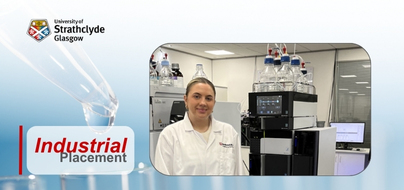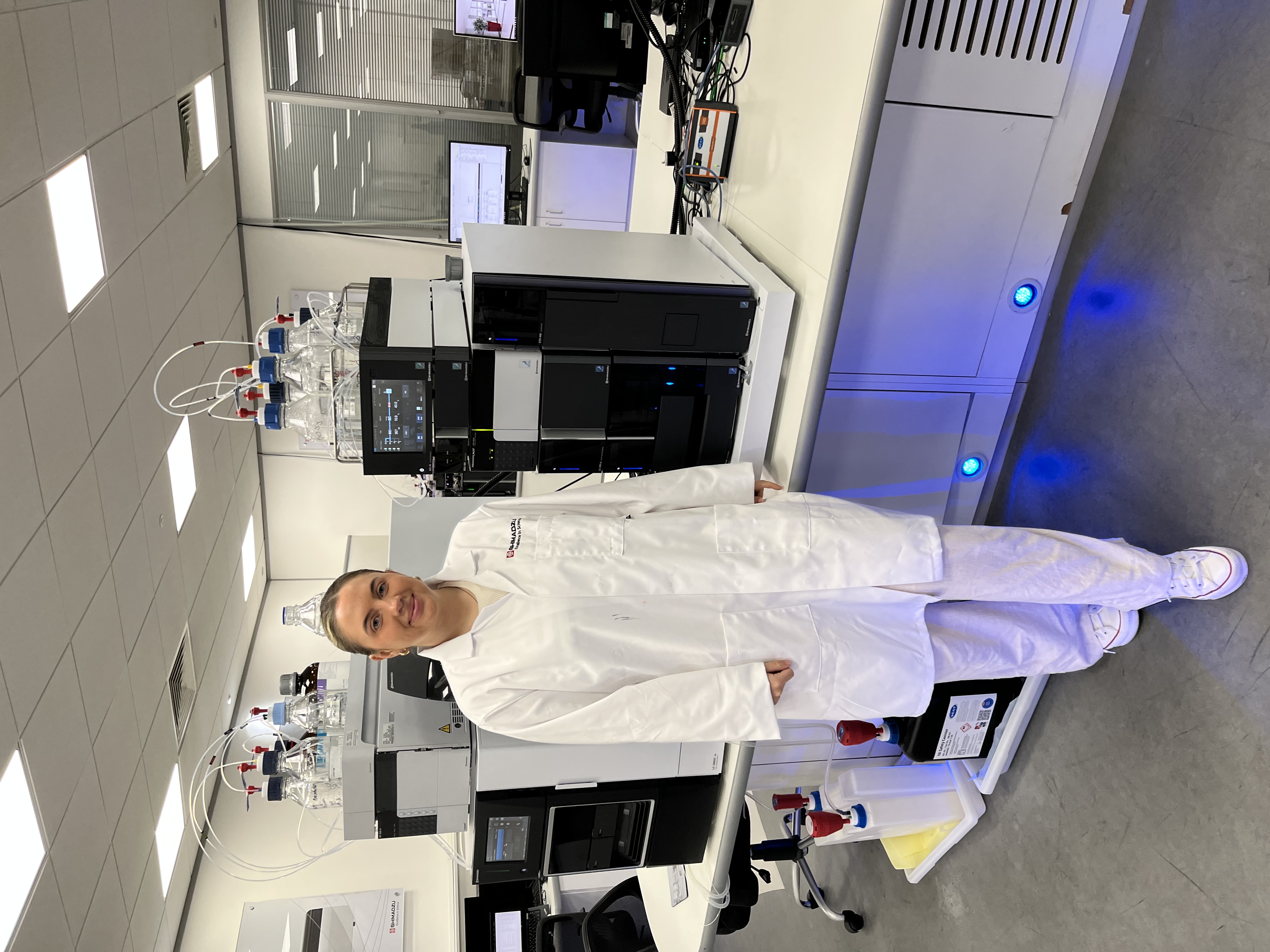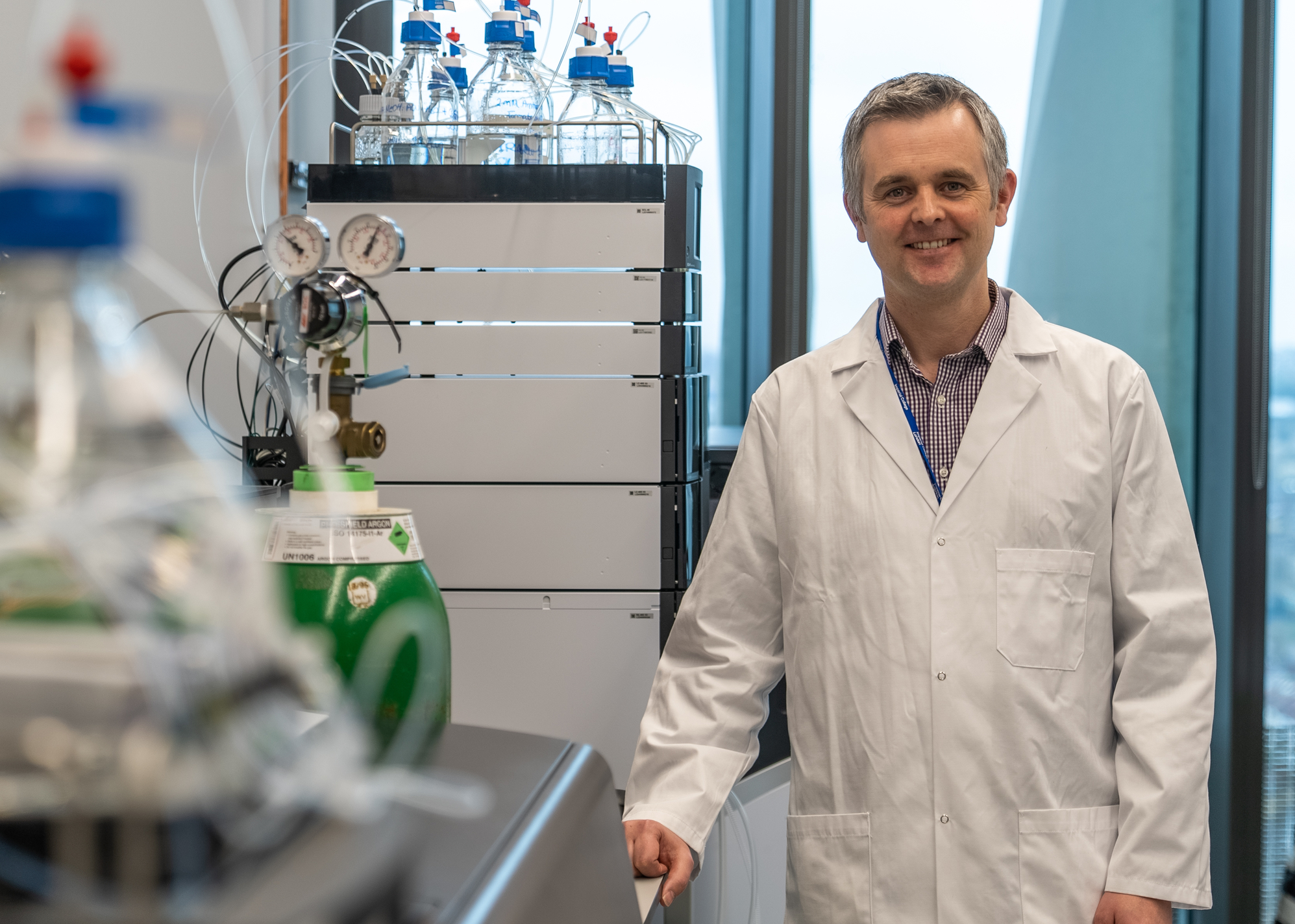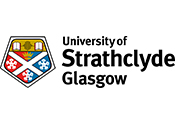Industrial Placement at Shimadzu
Sophie Jolliffe, University of Strathclyde

University of Strathclyde
-
INDUSTRY
Life Science
-
KEYWORD
industrial placement, stationary phases
-
INTRODUCTION SERVICE&PRODUCTS
Nexera series
In the fast-paced world of chromatography, innovative research and cutting-edge techniques are constantly shaping the landscape. In an enlightening conversation with Sophie Jolliffe, an industrial placement student from Strathclyde University, we delve into the world of chromatography and the experiences gained during her placement at Shimadzu UK. Sophie shares valuable insights into her Master's project, the opportunity that brought her to Shimadzu, her views on industrial placements, and the bright future in the world of science.
The Master's Project: Unravelling Stationary Phase Secrets
 Sophie Jolliffe with the Shimadzu Nexera XR system at Shimadzu UK's Centre of Excellence.
Sophie Jolliffe with the Shimadzu Nexera XR system at Shimadzu UK's Centre of Excellence.Sophie Jolliffe's Master's project focused on differentiating reversed-phase stationary phases with low levels of positive character used in high performance liquid chromatography. The current method of using the extended Tanaka protocol had limitations in distinguishing between such phases. Sophie’s project concentrated on the development of a new methodology to differentiate these stationary phases based on their positive: hydrophobic character. This involved the evaluation of a range of sulfonic acid and neutral probes of varying hydrophobicity under differing chromatographic conditions.
The sulfonic acids underwent electrostatic attraction with the positive charge on the stationary phase. Sophie commented: “We took a range of columns varying in positive character and developed a methodology that proved accurate and, importantly, robust. After the attraction experiment was completed, I set out to look at electrostatic repulsion, taking a range of bases and neutral probes. From this, we found that no probe would be suitable in determining electrostatic repulsion on its own and as such, a gradient method using multiple probes was developed to validate the electrostatic attraction methodology.”
The Opportunity at Shimadzu: A Fortunate Encounter
Shimadzu regularly collaborates with UK universities to offer talented students the opportunity to work on projects at the Shimadzu UK Centre of Excellence in Milton Keynes. Sophie's journey to Shimadzu began when she was taught by Professor Mel Euerby at Strathclyde University and developed a keen interest in chromatography. During a pharmaceutical analysis course, Sophie enquired about the work at Shimadzu and discovered an exciting project lined up with Ferring Pharmaceutical Company based in Denmark. Despite the challenges posed by the Covid-19 pandemic, Sophie became the only student to experience an external project, a unique opportunity for which she is deeply grateful.
Learning at Shimadzu: A Fountain of Knowledge
Asking Sophie about her time at Shimadzu UK, she responded: "My time at Shimadzu has been incredibly enlightening. Working on my Master's project alongside experienced professionals has allowed me to gain in-depth knowledge of liquid chromatography (LC), including the resolution equation and the various stationary phases. Professor Euerby's guidance has been invaluable, and I am confident that his expertise will be missed in academia and the industry after his retirement in the Summer."
Sophie also acknowledges the invaluable guidance of Dr Jen Field, who taught her the ins and outs of LC, from maximising data output to equipment maintenance: “Through their guidance, I now feel comfortable working independently in the Shimadzu labs and have seen a vast improvement in my understanding of chromatography," she added.
The Value of Industrial Placements: Bridging the Gap
At Shimadzu, bridging the gap between industry and university teaching is a priority. Our corporate philosophy, to 'Contribute to Society Through Science and Technology' underpins our efforts to raise the level of quality and understanding in practical analytical and laboratory skills at universities across the UK.
Sophie emphasizes the importance of industrial placements for students aspiring to enter the industry. While university placements have their place, she believes that nothing prepares students better for the real challenges in the industry than working on actual projects. Sophie added: “Industrial placements provide a chance to learn from diverse experts and gain insights into different specialties.”
And what advice does she have for other students interested in industry projects? “If you are considering an industrial placement, talk to your guest lecturers, especially those who are currently in the industry or have experience in it. Show your enthusiasm for industrial placements, as the industry values enthusiastic students. The divide between universities and the industry can be bridged through such placements and they are more important now than ever.”
Future Plans: Advancing Knowledge and Collaboration
Sophie is excited to embark on a Ph.D. position at Strathclyde University, building upon the skills and knowledge she gained during her time at Shimadzu. However, her immediate focus is delivering quality results for Ferring, the company she collaborated with during her industrial placement: “I am looking forward to be able to use more Shimadzu equipment throughout my career,” she added.
Final comments
In her final comments, Sophie expresses her gratitude for the time she spent at Shimadzu:
“I’m just very grateful for all the time that I have spent here, and the kindness that I have been shown not only by every technical department, but also by the office staff. I have not been made to feel like a student, but rather as part of a team, I have been able to assist on other projects and learn about issues the industry is currently facing and how that’s going to affect the future. I’ve also been lucky enough to sit in on potential collaborative projects as well as courses offered to customers. I think that Shimadzu could offer so many exciting projects to masters students and PhD students, the expertise that the technical team have is astounding, and I hope that this will be passed on to other lucky students, because I know that the work produced would be incredible.”
We wish Sophie all the very best for her scientific career. .







